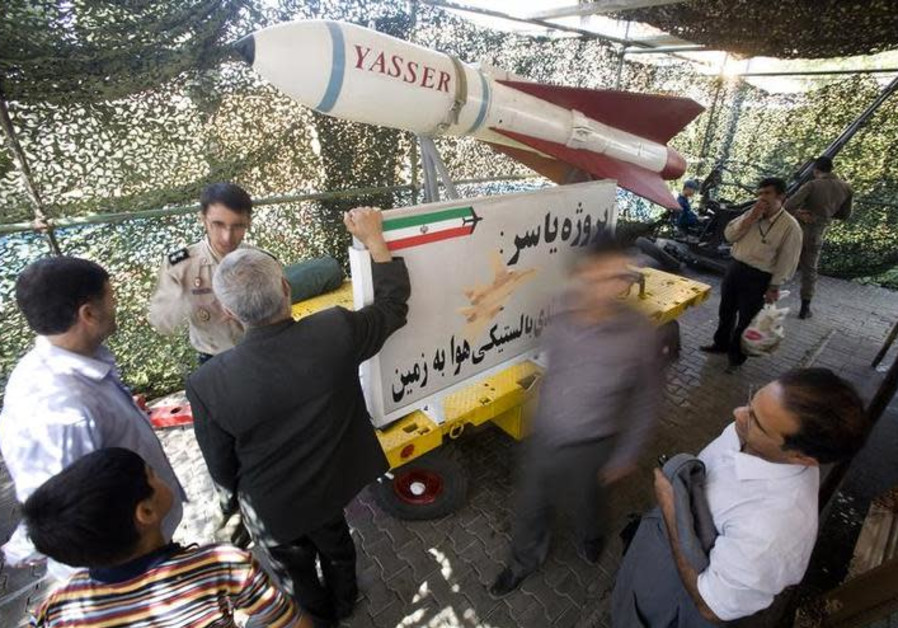Analysis: When Iran terror, missiles, nuke program mix – is EU fed-up?

A member of Iran’s army speaks with a visitor as they stand next to the Iranian Yasser ballistic bomb during a war exhibition to commemorate the anniversary of Iran-Iraq war (1980-88), in Baharestan square near the Parliament building in southern Tehran . (photo credit: REUTERS/MORTEZA NIKOUBAZL)
Join Jerusalem Post Premium Plus now for just $5 and upgrade your experience with an ads-free website and exclusive content. Click here>>






Comments are closed.